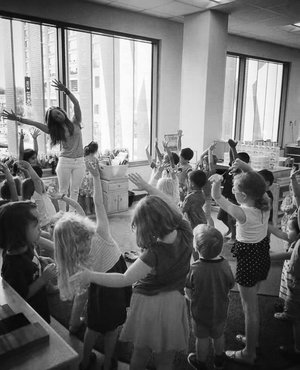Embarking on a career in Montessori education is a fulfilling journey, but one that often requires proper training and certification. Aspiring Montessori educators frequently explore online certification for flexibility and accessibility. In this article, we will delve into the common pricing and scheduling factors that go into various Montessori teacher education programs, so you can make the best decision for your future, with a particular focus on the quality education at Montessori Teacher Education Institute Of Atlanta (MTEI).
We will also highlight the benefits of choosing a reputable program, discuss the typical schedule and teachings, and outline the career advantages of obtaining Montessori certification.
Understanding Montessori Certification Costs
Montessori certification programs vary in cost, depending on factors such as the institution's reputation, program duration, and the depth of training provided. Online Montessori certification programs often offer flexibility, allowing individuals to balance their studies with other commitments. On average, Montessori certification costs can range from a few hundred to a couple of thousand dollars.
Beyond the financial aspect, it's crucial to recognize that the investment in Montessori certification goes beyond a monetary commitment; it's an investment in a transformative educational journey. The cost of Montessori certification reflects the quality of the training, the expertise of the instructors, and the comprehensive curriculum that equips educators with the skills needed to implement the Montessori philosophy effectively.
Consider the expenses not just as fees but as a contribution to a profound understanding of child development, teaching strategies, and the philosophy that underpins the Montessori method.
Montessori Teacher Education Institute Of Atlanta (MTEI) Pricing
As one of the recognized institutions providing hybrid Montessori certification, MTEI is known for its comprehensive and quality training. The institute offers various certification levels, each with its own pricing structure.
For example, the cost of the Early Childhood Montessori Certification program commonly differs from the Elementary Montessori Certification program. For reference, here is pricing information from the year 2021-2022:
Infant & Toddler and Early Childhood Course Fees
Program Tuition: $7,200
Elementary I - II Course Fees
Program Tuition: $8,200 FOR E I, $11,200 FOR E I-II
Prospective students are encouraged to review the institute's official website or contact admissions for the most accurate and up-to-date pricing information.
Benefits of Choosing a Reputable Program
Investing in a reputable Montessori certification program, such as MTEI, comes with several advantages. First, reputable programs are more likely to be respected within the education sector. Employers often value certifications from well-established institutions, enhancing the employability of certified individuals.
Reputable programs typically offer a comprehensive curriculum, ensuring that students receive thorough training in Montessori philosophy and teaching methods. The guidance and mentorship provided by experienced educators contribute to a more enriching learning experience, better preparing individuals for success in the classroom.
MTEI is MACTE-accredited and AMS-affiliated to provide the highest quality education to our students.
Typical Schedule and Teachings
Montessori certification programs, whether conducted online or in person, follow a structured curriculum designed to cover key aspects of Montessori education. Hybrid programs like those offered by MTEI often provide flexibility in terms of scheduling, allowing adult learners to successfully complete the requirements to obtain Montessori teaching credentials.
The curriculum typically includes in-depth studies on:
Montessori philosophy and pedagogy,
child development,
best practices,
understanding the precision of the Montessori materials,
and the transformative preparation of the adults and their roles in the Montessori environment.
Practical components, such as astute observations and teaching experiences, are integral to the certification process. The combination of theoretical knowledge and practical application equips aspiring Montessori educators with the skills needed to create a dynamic and engaging learning environment.
Career Benefits of Montessori Certification
Earning a Montessori certification transcends the acquisition of a mere qualification; it is a gateway to a fulfilling and impactful career in education. Montessori-trained educators find themselves at the forefront of a global educational movement, with their skills and philosophy highly sought after by institutions around the world.
Global Demand
The demand for Montessori-trained teachers is not confined to a particular region; rather, it spans continents. The international recognition of Montessori education ensures that certified teachers can explore enriching opportunities globally. The certification not only validates one's commitment to quality education but also acts as a key that unlocks doors to various educational systems.
Professional Credibility
Beyond the global appeal, Montessori certification significantly bolsters an individual's professional credibility. Employers, whether in traditional schools or specialized Montessori environments, highly value the unique and comprehensive training that Montessori certification represents. This acknowledgment enhances the educator's standing in the eyes of peers, parents, and educational authorities, contributing to a sense of professional accomplishment.
Foster Holistic Child Development
One of the distinctive aspects of Montessori certification is its emphasis on fostering independent learning and holistic child development. This pedagogical approach not only aligns with esteemed educational philosophies but also places Montessori-certified teachers in high demand. Schools recognize the value of educators who can create nurturing learning environments that cater to the individual needs and developmental stages of each child.
Shape the Future of Education
As the demand for Montessori education continues to grow, the certification becomes an increasingly valuable asset. The recognition of the effectiveness of Montessori methods in cultivating critical thinking and a lifelong love of learning ensures a sustained demand for certified educators. This not only translates into a stable job market but also offers educators the opportunity to be pioneers in shaping the future of education.
Choose MTEI for Affordable Costs and Premier Education
Choosing to pursue a Montessori certification online is a significant step toward a fulfilling career in education. Understanding the common pricing structures, such as those offered by the Montessori Teacher Education Institute Of Atlanta (MTEI), provides prospective educators with valuable insights into the financial investment required.
Opting for a reputable program ensures not only quality training but also enhances career prospects by making individuals more marketable to potential employers. With a focus on both theoretical knowledge and practical application, the MTEI certification programs equip educators with the skills needed to create nurturing and effective learning environments.
The career benefits of receiving an MTEI certification are far-reaching, offering opportunities for personal and professional growth in the dynamic field of education.
Contact the Montessori Teacher Education Institute of Atlanta today to get started.















